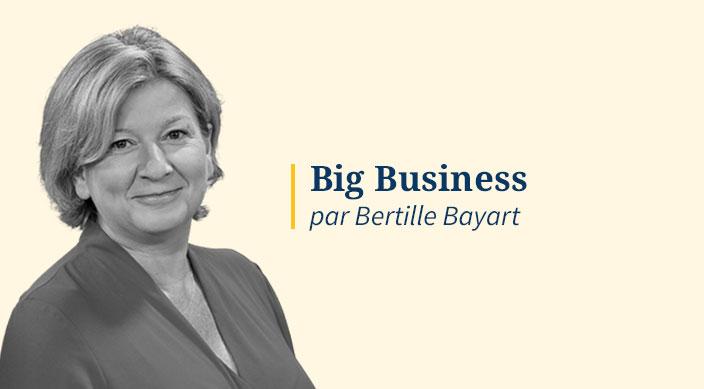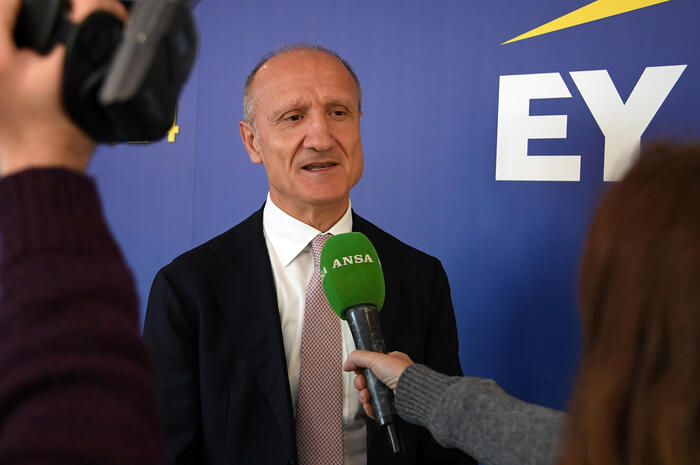Enlarge image
Building of the auditing company EY
Photo: Political Moments / imago images
The relationship between the parliamentarians and the auditor Ernst & Young (EY) had been heavily strained since the beginning of the Wirecard investigation committee in the Bundestag: At first, the auditors of the insolvent financial service provider refused to give evidence on the matter.
The Federal Court of Justice first had to decide that the EY witnesses were allowed to testify.
At the end of the committee of inquiry, a dispute between the officers in Berlin and the auditors came to a head. It is about the results of a special investigator who should examine and evaluate the audit work of EY. EY does not want to consent to the publication of the entire investigation with reference to the personal rights of its employees and relies on business secrets. The MPs let this dispute escalate with the appeal to the Federal Court of Justice.
In this heated mood, EY is now trying, on the one hand, to relax relations with the members of the committee of inquiry.
This involves the final report of the control committee, which is to be handed over to the President of the Bundestag Wolfgang Schäuble (CDU) in the coming week and discussed in plenary.
In addition to the final report supported by the coalition, there is a special vote formulated by the Greens, the Left and the FDP, the opposition assesses some issues differently than the CDU / CSU and SPD.
"We deeply regret"
EY has submitted a 20-page statement from its own lawyers on both draft reports, which SPIEGEL has received. It begins conciliatory before the lawyers question the assessment of parliament and the special investigator, criticize it as wrong and distorting - and demand that entire passages be deleted from the final report of the committee of inquiry. The names of all EY employees should also be anonymized.
Obviously, the group is trying above all to maintain its legal position in the dispute over damages with cheated investors. At the same time, the two new bosses of EY, Henrik Ahlers and Jean-Yves Jégourel, have written an accompanying letter to the "honored ladies and gentlemen". In it they strike conciliatory notes. One “deeply regrets” that the fraud “was not discovered earlier”, is a central sentence in this letter, which was sent to the committee secretariat last Friday night.
The two top managers at EY practice self-criticism. "With today's knowledge, we would have had to carry out more extensive audits in the core area of fraud and give more consideration to alternative courses of action." At the same time, they also limit the fact that it is not clear whether "in view of the high level of criminal energy of those involved" the discovery would have been made earlier can be done.
With a view to the Wirecard scandal, the committee of inquiry had spoken of a collective failure of the financial supervisory system, which the EY bosses are now also referring to. As an auditor, you were part of this system. "We face this responsibility," write the managers. You refer to the past twelve months after the collapse of Wirecard, in which one allegedly dealt with "comprehensively self-critically" the question of why the fraud was not discovered earlier.
Ahlers and Jégourel also approach the MPs themselves.
"We are sorry that you got the impression that EY did not cooperate to the extent you expected." The fact that some EY witnesses did not testify is justified by the "personal decision" of the employee on whom the Company have no influence.
EY appears similarly binding at the beginning of the actual statement on the final report.
It is written by the lawyers for the auditors, Björn Gercke and Franziska Lieb.
A "comprehensive clarification of the events" is in the interest of EY, it says there.
When it comes to the specific allegations made against EY, the lawyers go on a confrontation.
One should not make the mistake of evaluating EY's work with today's knowledge, one must use the information available at the time and the applicable audit standards as a basis.
And in many places the presentation in the draft final report on the committee of inquiry is simply wrong.
For example, unlike in the report, EY always included the allegations raised in the press - especially by the Financial Times - and from other sources in its own examination.
There are also "no indications" for "a collusion between the auditors" and those responsible at Wirecard, as the parliamentarians assume.
EY deals in detail with the allegation that the highly controversial takeover of the Hermes Group in India was not adequately recognized in the audit. The auditor contradicts this and rejects allegations in connection with a special investigation called "Project Ring", which an EY forensics team had initiated into the takeover. The question was whether Wirecard managers had filled their pockets with the deal and, among other things, faked sales for this purpose.
The parliamentarians are of the opinion that the auditors of EY inadmissibly ignored suspicious information from their forensic colleagues in their attestation for the Wirecard balance sheet. EY points out that the auditors have different criteria to apply than forensic experts. In addition, the findings of the colleagues were merely "observations" and not "facts".
EY's auditors threatened Wirecard at the end of March 2017 that they would not be able to issue an unqualified certificate because of "Project Ring" if Wirecard did not provide certain information.
A week later, EY had then fully approved the balance sheet.
The special investigator appointed by the parliamentary committee of inquiry, Martin Wambach, criticized in his report that EY had relied mainly on verbal statements by the Wirecard board in the turnaround.
EY rejects this too.
At the time, they received "extensive documents and information supplies" from Wirecard.
EY fell for crude fakes in part
The auditors' lawyers also consider the allegations against EY with a view to the so-called third-party business of Wirecard to be false. According to the insolvency administrator and the public prosecutor's office, this business, which has been solely responsible for the Group's profit since 2017 at the latest, did not exist for the most part and apparently served, among other things, to embezzle funds.
EY makes it clear that it has neither advised the third party business nor recommended the introduction of trust accounts, which presumably predominantly faked sales. "Audit procedures that go far beyond the usual level" have been carried out on the third-party business. There was no legal provision for bank receipts to be presented for trust accounts, the verification of balance confirmations presented by the trustee was appropriate. These balance confirmations were - sometimes clumsy - forgeries, as we know today.
Finally, the opposition representatives in the investigative committee were also wrong to claim that, with the unqualified certificate for the 2018 annual financial statements, EY "was fully aware of the irregularities (sent) the signal to the market that Wirecard did not have any significant irregularities."
After all, the auditor's report contained explicit references to allegations made publicly at the time.
How explicit these references were can be argued about.
EY only dealt in detail with the allegations at the time in a non-public annex to the test report.
»Not bricked«
The EY lawyers strongly defend themselves against the accusation that the auditor had "bricked up" the committee of inquiry. The extent to which EY people were even allowed to answer questions in front of the parliamentarians had to be clarified in court. A decision of the committee, with which EY should be forced to hand over certain examination documents, is "in not insignificant parts not compatible with the Basic Law". Nevertheless, after the Federal Court of Justice had obliged EY to hand over documents, "constitutional concerns" were postponed and extensive documents were made available.
Furthermore, EY is of the opinion that the sensitive documents should in large part only be given to parliamentarians for inspection at the federal secret protection office; they only agree to the publication of a summary of the Wambach report.
A spokesman told SPIEGEL that EY regretted that the parliamentarians had not approved a version of the report proposed by the company for the public.
"EY therefore welcomes the clarification by the supreme court that is now being sought." Again it will go to the Federal Court of Justice to clarify the delicate question.
It therefore seems doubtful that the relationship between auditors and officers in the committee of inquiry will improve significantly after the two documents from this weekend.









